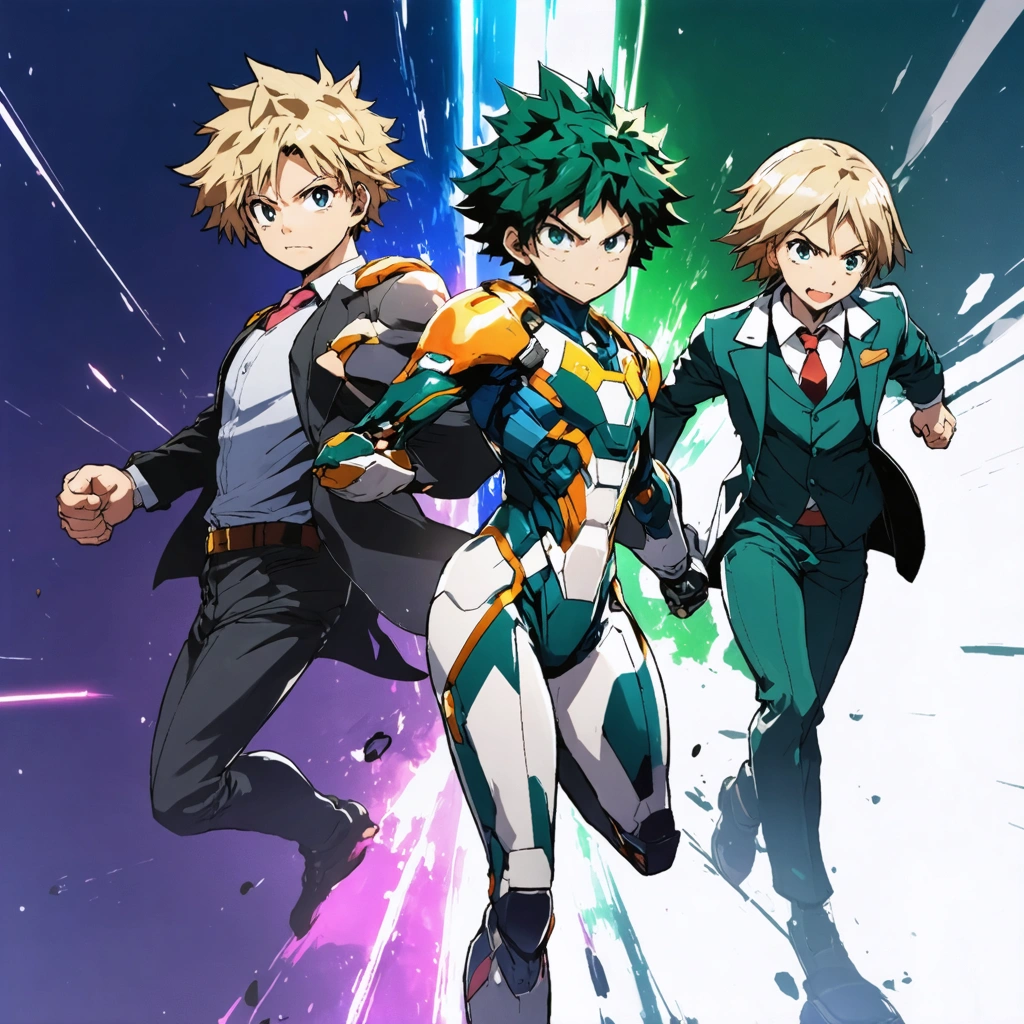
Introduction
The conclusion of My Hero Academia, one of the most influential anime series of recent decades, marks a turning point not only in its intricate narrative but also in its broader cultural and economic impact. As the final season progresses towards its climactic end in October, industry experts, fans, and business strategists are closely monitoring this phenomenon. This article examines the multifaceted implications of My Hero Academia’s final season, addressing narrative techniques, character development, business metrics, and its long-lasting cultural legacy in a detailed and businesslike manner.
Plot Overview and Narrative Mastery
Major Story Arcs and Their Evolution
Throughout its run, My Hero Academia has captured audiences with a blend of high-stakes conflict and thoughtful character dynamics. In this final season, the structure of the story becomes even more refined by revisiting and resolving longstanding conflicts. Key elements include:
- The Heroic Journey: A continued emphasis on the maturation of young heroes, particularly Izuku Midoriya (Deku) and his peers, culminating in a final test of moral and physical strength.
- Antagonistic Forces: Greater exploration into the origins and ambitions of the antagonists, setting up a series of confrontations that promise to be both physically spectacular and emotionally resonant.
- Ethical Dilemmas: Critical decision points that challenge the traditional hero vs. villain dichotomy, pushing characters to question their own identities and the societal structures they serve.
This deliberate narrative focus not only increases stakes but also invites audiences to reflect on larger societal questions, making it essential viewing for both devoted fans and newcomers alike.
Character Development and Evolution
Deku and his friends have grown from fledgling heroes to role models whose actions and decisions carry significant weight. This evolution is illustrated through several key themes:
- Resilience in Adversity: Characters are consistently challenged by circumstances that test their limits, often revealing hidden depths and previously untapped strengths.
- Collaboration and Conflict: Team dynamics play a crucial role, with alliances forming and fracturing in the face of overwhelming threats. Each character’s personal journey contributes to the larger narrative of sacrifice, commitment, and hope.
- The Burden of Legacy: The responsibility of living up to the ideals of previous heroes and preparing for a world free of overwhelm is a recurring motif that drives both internal and external conflict.
Through these layers of character development, the final season not only addresses immediate narrative conclusions but also opens a window into the evolving ethos of heroism, highlighting the struggles and triumphs that define human perseverance.
Business Implications and Cultural Impact
Market Trends and Revenue Generation
The culmination of My Hero Academia’s narrative journey comes with notable commercial significance. The series has consistently driven high revenue through merchandising, licensing, and international streaming platforms. Key points include:
- Merchandise Sales: The franchise has consistently generated significant revenue from collectibles, apparel, and themed products. These streams are expected to peak during the final season’s broadcast, impacting both domestic and international markets.
- Streaming and Licensing Deals: Global streaming platforms have witnessed a surge in subscriptions and viewership numbers, reaffirming the international appeal of the series.
- Promotion and Advertising: Marketing campaigns surrounding the final season have led to increased engagement, with advertisers and sponsors leveraging the massive fan base to promote their brands.
Cultural Legacy and Global Outreach
Beyond its financial impact, My Hero Academia has cemented its place in modern pop culture. The series’ ability to merge traditional elements of heroism with contemporary challenges has enabled it to transcend cultural barriers. Consider the following elements:
- International Fan Communities: Diverse audiences across continents have embraced the series, leading to an expansive network of fan clubs, conventions, and online forums dedicated to discussion and celebration.
- Educational and Inspirational Values: The dynamic narrative and complex character arcs serve as a source of inspiration, offering lessons in teamwork, moral courage, and the resilience of the human spirit.
- Media and Critical Reception: Industry critics and mainstream media have lauded the series for its innovative storytelling and its willingness to confront contemporary issues through a fantastical lens.
Fan Engagement and Future Prospects
Engagement Through Digital Platforms
The transition into the final season has significantly boosted digital engagement. Social media platforms display vibrant discussions, fan theories, and live reaction streams, culminating in a comprehensive digital footprint. This engagement is facilitated by:
| Platform | Engagement Strategy | Outcome |
|---|---|---|
| Live tweeting and official hashtags | Global trend status | |
| YouTube | Review videos and live discussions | High view counts and sustained discussion |
| Fan pages and interactive events | Community building with sustained fan interaction | |
| Visual storytelling and behind-the-scenes content | Enhanced brand loyalty |
The integration of these strategies has not only increased engagement but has also reinforced the series’ status as a benchmark within the anime industry.
Strategic Business Considerations for Future Franchises
As My Hero Academia reaches its conclusion, industry stakeholders are already analyzing future opportunities. Key considerations include:
- Content Legacy: Leveraging the established fan base for continued revenue streams through spinoffs, merchandise, and digital content is a priority.
- Market Expansion: The series’ international appeal provides a blueprint for expanding anime markets outside traditional boundaries.
- Innovative Storytelling Techniques: Future franchises are expected to adopt the narrative intricacies and business models demonstrated by My Hero Academia in order to capture similar success.
In conclusion, the final season of My Hero Academia represents more than just the end of a beloved series; it marks a significant moment where storytelling converges with strategic business models to create an enduring cultural phenomenon. Its legacy is expected to influence everything from character-driven narratives to global marketing strategies in the years to come.






